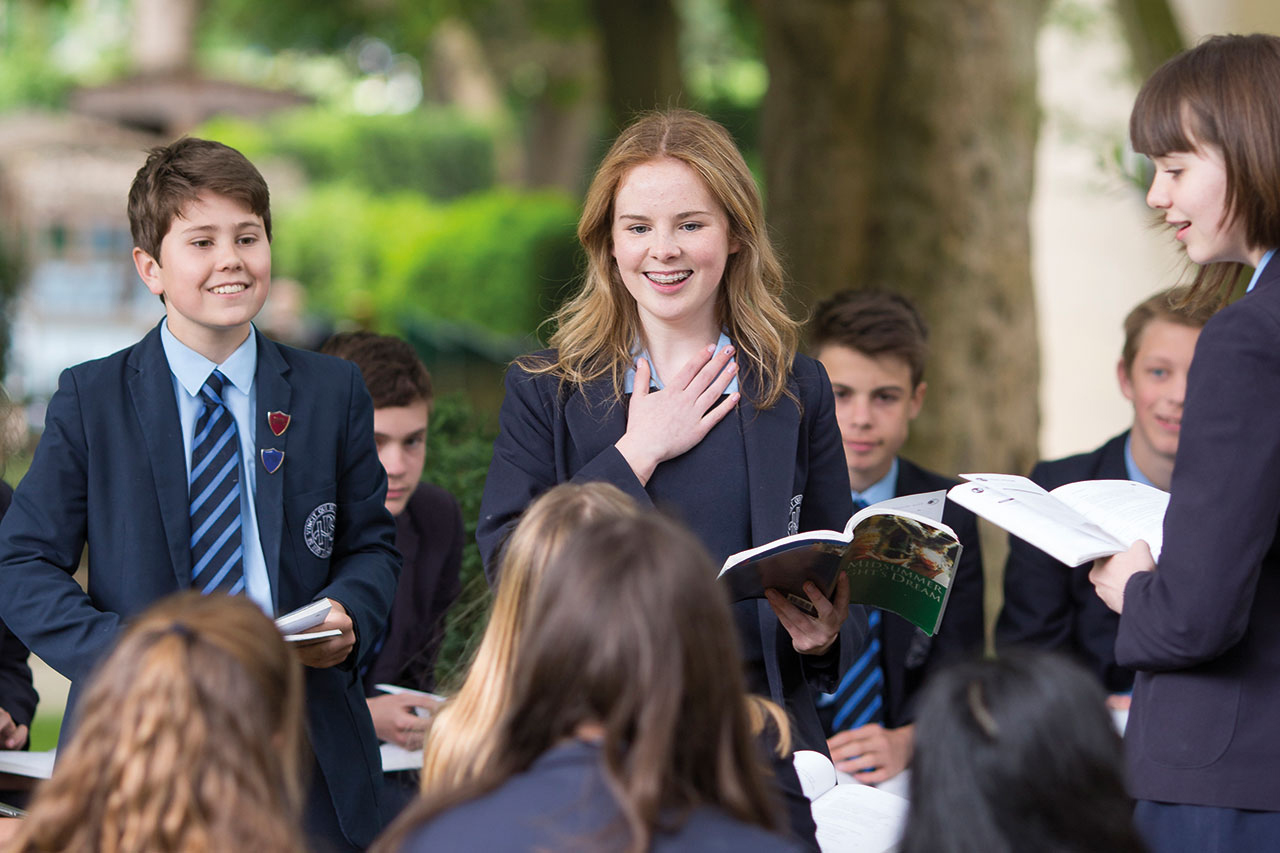Five Ways to Boost Confidence in Pupils
By
9 years ago
Listen to the small stuff, otherwise you might never hear the big stuff

Some thoughts on fostering resilience and confidence from John Baugh, headmaster of the Dragon school.

Pupils at Ibstock Place School
If you are reading this, chances are, you are an adult. If not, it doesn’t matter – read on. Let me start with a question: When was the last time you felt truly confident? With no doubts, no worries – just totally sure of yourself in what you were doing. If you answered: all the time, right now, earlier today or only yesterday – then that’s excellent. Although I would also suggest you are quite a rare person.
If we are honest in the way we choose to evaluate our emotions, I suspect that all of us, regardless of what we are doing in our lives, remain on a spectrum that ranges from pretty unsure of ourselves to reasonably confident. I have probably never met anyone that I could be sure had the total self-confidence described above.
Yet self-confidence is one of the most important qualities that we would like to see in ourselves and in our children. It’s the ability to hold a conversation, to remain a reassuring presence within a group of people facing difficulty or uncertainty, with the power to instill in others a confidence that is lacking. It’s the inner strength to look people in the eye – when was the last time you experienced this while shaking hands in greeting or farewell? We all face uncertainty and insecurity at times. If we recognise that in ourselves, we cannot expect our children to grow into the all-conquering, super confident, eternally resilient adults we are not.
For those of us who work with children – either as teachers or as parents – there must be things we can do to help young people gain in confidence, resilience or grit. There must be plans and programmes we can put in place to help children grow towards this sureness of self that we so badly want for them. Surely someone has come up with something we can all do in school and at home to help set young people on a path of self-assurance, certitude and positive self-esteem? Of course, there are so many buzzwords emerging in correlation with this growing discussion. Just google ‘developing confidence in children’, or something similar, and you will find thousands of web sites with pages and pages of advice, and some of it actually makes sense.
In the limited space I have here, I will offer just a few suggestions:
-
Learn about attachment theory
It can be a controversial subject, but most researchers admit that when you extract the popular exaggerations of attachment theory or attachment parenting from the more objectively-oriented scientific studies, it’s a sensible approach that fosters physical and psychological health in children.
-
Portray confident behaviour
This sounds obvious, but if you would like your children to appear confident, as well as engage empathetically and compassionately with others, then do so yourself. If you choose to spend time on your devices in front of your children, and place this activity ahead of personal interaction with them and others in the family, then don’t be surprised if they don’t learn some of the social skills you would expect and like.
-
Put down the tablet
Likewise, if you are happy that they spend their time on tablets and devices in a restaurant (this seems to have replaced colouring books), don’t be surprised that they take longer to learn the art of conversation and some of the more important social interactions.
-
Find time for play
By this mean real, unsupervised play. Ballet, horse riding and Sunday morning rugby clubs are great fun but they do not provide opportunities for creative, imaginative, independent play, where children learn to follow their innate drive to explore. So much research shows that ‘free play’ will strengthen them intellectually, socially, emotionally and physically.
-
Encourage children to express their feelings
And really listen to them. Children test us with the small stuff to see if we can handle the big stuff. Put down the book, the phone or the tablet. Turn off the television; get down to eye level; share and try to empathise with their feelings. That seemingly trivial story may just be a pathway to something bigger. If you are not listening to the small stuff – the big stuff may never be revealed.
All of this takes time and hard work. It should also start early. We all hope the children grow up to be confident adults who can make their way in the world. But remember what it’s like for us parents and teachers too. As Plato said, ‘Be kind, for we are all fighting a hard battle’.



